 Petzlover
Petzlover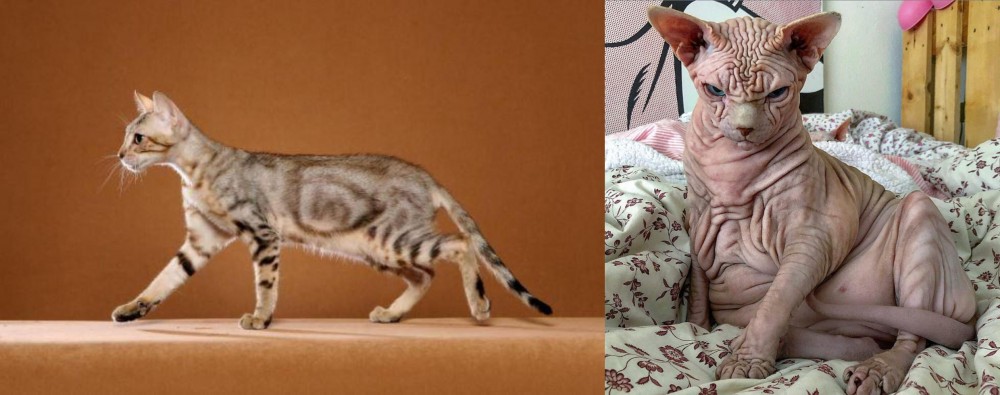 Sokoke is originated from United States but Sphynx is originated from Canada. Both Sokoke and Sphynx are having almost same weight. Both Sokoke and Sphynx has almost same life span. Both Sokoke and Sphynx has same litter size. Sokoke requires Low Maintenance. But Sphynx requires Moderate Maintenance
Sokoke is originated from United States but Sphynx is originated from Canada. Both Sokoke and Sphynx are having almost same weight. Both Sokoke and Sphynx has almost same life span. Both Sokoke and Sphynx has same litter size. Sokoke requires Low Maintenance. But Sphynx requires Moderate Maintenance
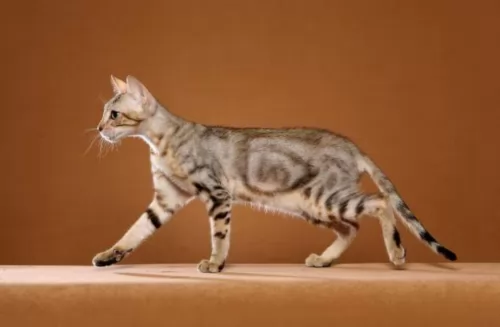 Compared to other breeds of cat, the rare Sokoke Forest Cat is a fairly new natural breed. It comes from the Sokoke district of eastern Kenya but was developed in the USA.
Compared to other breeds of cat, the rare Sokoke Forest Cat is a fairly new natural breed. It comes from the Sokoke district of eastern Kenya but was developed in the USA.
It is in fact, named after the Arabuko Sokoke National Forest, from where the wild foundation stock came from. Wildlife artist Jeni Slater started breeding these cats in the 1970s. They eventually reached Denmark, where further breeding continued, with the cat becoming popular with local cat fanciers, and laid the foundation of the breed in Europe.
Today, there are just a few breeders registered in the UK and TICA, The International Cat Association lists the Sokoke cat as a New Preliminary Race and it was recognized by FIFe in 1993.
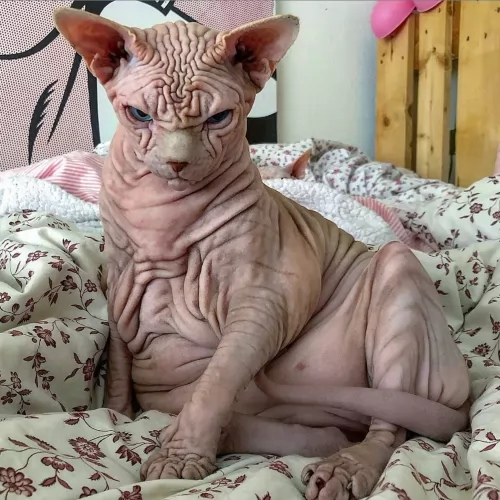 The Sphynx cat is well known for its hairlessness. This breed started its development in Toronto, Canada.
The Sphynx cat is well known for its hairlessness. This breed started its development in Toronto, Canada.
A hairless kitten was born and it was mated to produce more hairless kittens. These kittens were called Canadian Hairless Cats. They were used as the foundation for a new breed.
In the 1970s, more hairless kittens were born and placed into the Sphynx breeding program. They were mated with Devon Rex cats. The International Cat Association recognizes this cat breed.
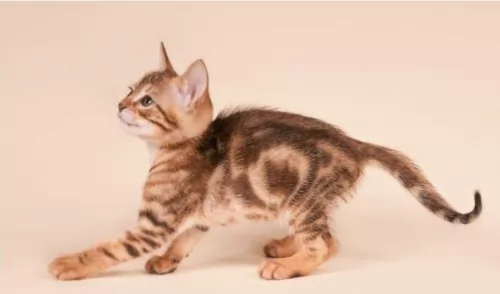 The Sokoke is a medium-sized cat with a long, lean body and slender legs. The hind legs are somewhat longer than the front legs. The head is smallish and round and he has a constantly alert look to him.
The Sokoke is a medium-sized cat with a long, lean body and slender legs. The hind legs are somewhat longer than the front legs. The head is smallish and round and he has a constantly alert look to him.
A striking characteristic of the Sokoke cat is its tabby fur, which people say looks like the bark of a tree and it is brindle in coloring.
The tail is medium to long and the ears are also fairly large, The eyes are large and almond-shaped and can be greenish to brown. The coat is short and coarse.
Cat lovers enjoy these playful, curious, intelligent, and family-orientated cats. In spite of their wild side, they adapt easily into different homes.
They’re inquisitive and will follow you, much like a dog. They will even enjoy a leash being put on them and being taken for a walk. They’re very sociable and vocal too and get on with everyone, children and other pets included.
They’re playful cats, loving to jump and climb and then look down at you from their high perches. Easily bored, you will need to provide fun and games continuously.
They enjoy being involved with everything you’re doing and form a strong bond with their owners. Because the Sokoke is social and affectionate, they require quite a lot of attention, and if they don’t get the attention they crave, they meow in anxiety.
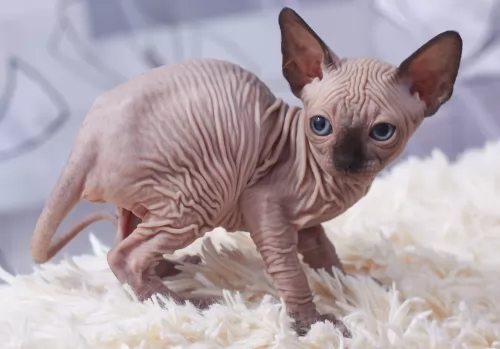 The Sphynx is a medium-sized, fine-boned, muscular cat that weighs roughly between 3.5 – 7 kg. The skin of the cat has a soft chamois type feel to it.
The Sphynx is a medium-sized, fine-boned, muscular cat that weighs roughly between 3.5 – 7 kg. The skin of the cat has a soft chamois type feel to it.
Sometimes there can be a few hairs. The head of this cat is longer and narrower than many of the other cat breeds. The ears are large.
This cat is going to need a bath once a week with special medicated cat shampoo. The cat also has no whiskers or eyelashes. The legs are long and slender and he has a barrel chest. All skin patterns and colors are available with the cat.
The Sphynx is a loving, friendly, energetic, extrovert cat that loves nothing more than to be petted and pampered.
It one of the few dependent cats there are. Even though he is social, he isn’t very vocal. They are playful too and because they are also intelligent, they will need stimulating games and toys to keep them from becoming bored.
They get on well with children in the home. Like many other cats, the Sphynx cat can be doglike and they like to welcome their owners home.
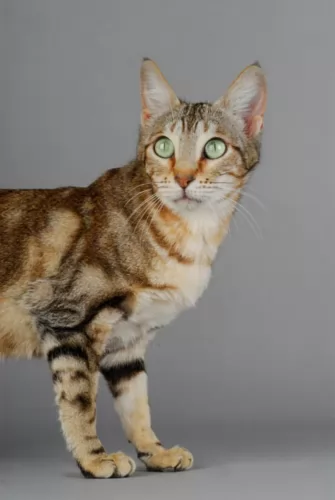 Your Sokoke is a very social cat and he will get on particularly well in a home with children who have been taught to be kind and gentle with animals.
Your Sokoke is a very social cat and he will get on particularly well in a home with children who have been taught to be kind and gentle with animals.
They are able to adapt well to homes where there are other pets too. They just love exercise and lots of fun. They don’t like being in a home where the owner is out at work all day. The solution to this is to provide him with another cat as a companion.
Sokoke cats are great with people of all ages, and when you bring one of these lively cats into your home, make sure he also receives his share of love and companionship.
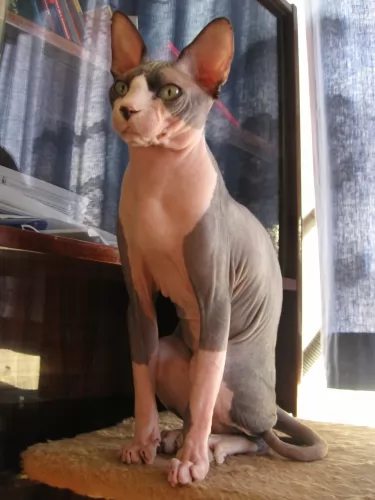 The Sphynx can be in a house where there are children who have been taught to be kind and gentle with animals.
The Sphynx can be in a house where there are children who have been taught to be kind and gentle with animals.
The cat is energetic and loves to entertain and amuse his human family with his antics.
He is loving and loyal to his human family and absolutely hates staying on his own. He can actually get depressed when he is left on his own often.
He would be far better off with another cat companion. If you're looking for a fun, playul, loving and affectionate feline companion, you need look no further than the weird-looking sphynx cat.
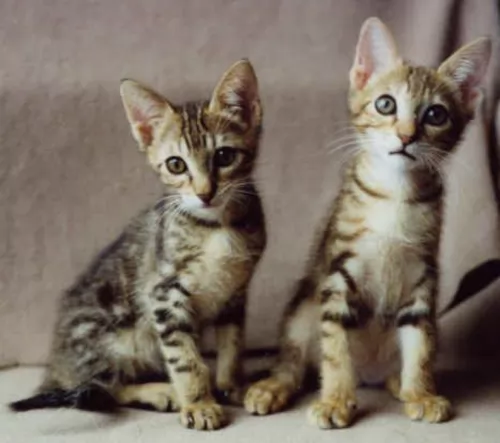 Sokoke cats are generally healthy and have no inherited diseases. To ensure that your Sokoke stands a chance of having a healthy life, you need to have him vaccinated against the life-threatening cat diseases there are.
Sokoke cats are generally healthy and have no inherited diseases. To ensure that your Sokoke stands a chance of having a healthy life, you need to have him vaccinated against the life-threatening cat diseases there are.
If your Sokoe cat isn’t his usual self day after day, make a point of getting him to the vet just as soon as possible.
Parasites are a terrible scourge with cats, and in fact, the number one cause of hair loss in cats is fleas. The bite of a flea can cause an allergic reaction. Your cat can become miserable with continuous biting, itching, and scratching and this can all lead to hair loss.
It is a wise move to speak to your vet about a good product to treat your furry friend with.
There can actually be many causes of diarrhea in cats and one of them is parasites, but it can also be caused by a viral infection or food allergy or something else.
You want to get your cat to the vet who can help you bring it under control. You may also have to feed your cat a bland kind of diet to help the cat’s digestive tract recover from the diarrhea.
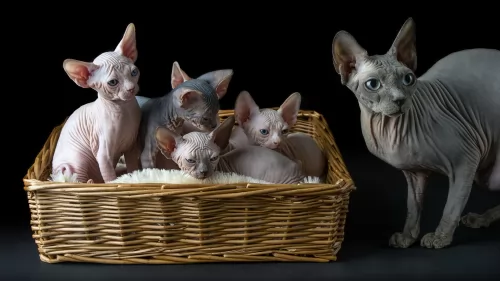 The Canadian Sphynx, just because of its lack of hair, already faces challenges. Other cats have fur to keep them warm and to protect the skin from sunlight.
The Canadian Sphynx, just because of its lack of hair, already faces challenges. Other cats have fur to keep them warm and to protect the skin from sunlight.
In fact, when the kittens are born, without hair, they are vulnerable and become prone to respiratory infections. Reputable breeders, therefore, only allow their kittens to go to new homes when they are at least 14 weeks of age.
This cat is also prone to skin problems and this could include rashes and fungal infections. As with any other cat, the Sphynx cat requires protection from harmful cat diseases by being vaccinated.
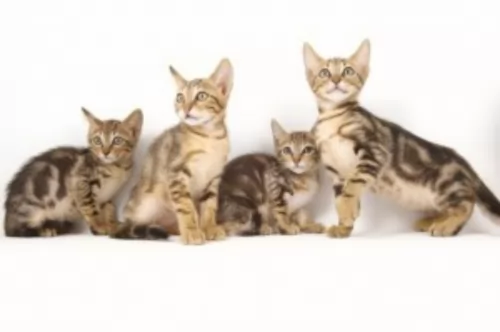 Because the Sokoke’s coat is short and close-lying, with little or no undercoat, brushing once a week will be sufficient.
Because the Sokoke’s coat is short and close-lying, with little or no undercoat, brushing once a week will be sufficient.
The Sokoke cat is very energetic, and he will need games, toys, and attention to keep him physically and mentally stimulated. They love climbing so a climbing tree and other kind of equipment will be a good idea.
Provide your cat with a litter box and ensure it is kept scrupulously clean by removing the cat’s feces every single day.
Diet is of critical importance to the health and happiness of a cat. Some people try to feed their cats human foods and wonder why their cat is continuously sick. A cat is a carnivore and he requires meat.
You can speak to your vet about the best kind of commercial cat food there is for your cat. Read the label and feed him portion-sizes as directed.
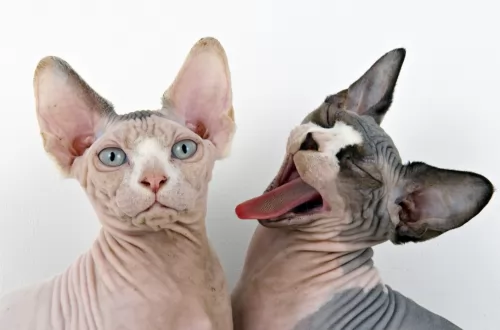 Even though the Sphynx cat is hairless, he isn’t to be regarded as a low maintenance cat. First of all, the sheer lack of hair means he is more vulnerable to the sun and to the cold. If he goes outdoors, you have to be careful that his skin doesn’t get burned.
Even though the Sphynx cat is hairless, he isn’t to be regarded as a low maintenance cat. First of all, the sheer lack of hair means he is more vulnerable to the sun and to the cold. If he goes outdoors, you have to be careful that his skin doesn’t get burned.
These cats also have more ear wax than other cats as they don’t have hair in their ears. Dirt, wax, and oils can accumulate in the ears. They will need to be cleaned regularly, and a vet or the pet groomer can help you with this.
The Sphynx cat also collects oil and dirt under their nails, so just like the ears, the nails as well as the surrounding skin folds will need to be properly cleaned. Cat owners need to know that these hairless cats aren't as low maintenance as thought, but require quite a bit of grooming. Special grooming products are available for this cat.
What one cat likes to eat won’t be the same as another cat. The Sphynx, like every other cat, is a carnivore and he will need all the different nutrients from his food.
The best commercial cat food manufacturers know that the proportion of these nutrients will vary as the cat ages and goes through different stages of its life. Your cat needs the right meat foods and he needs the right quantity as well.